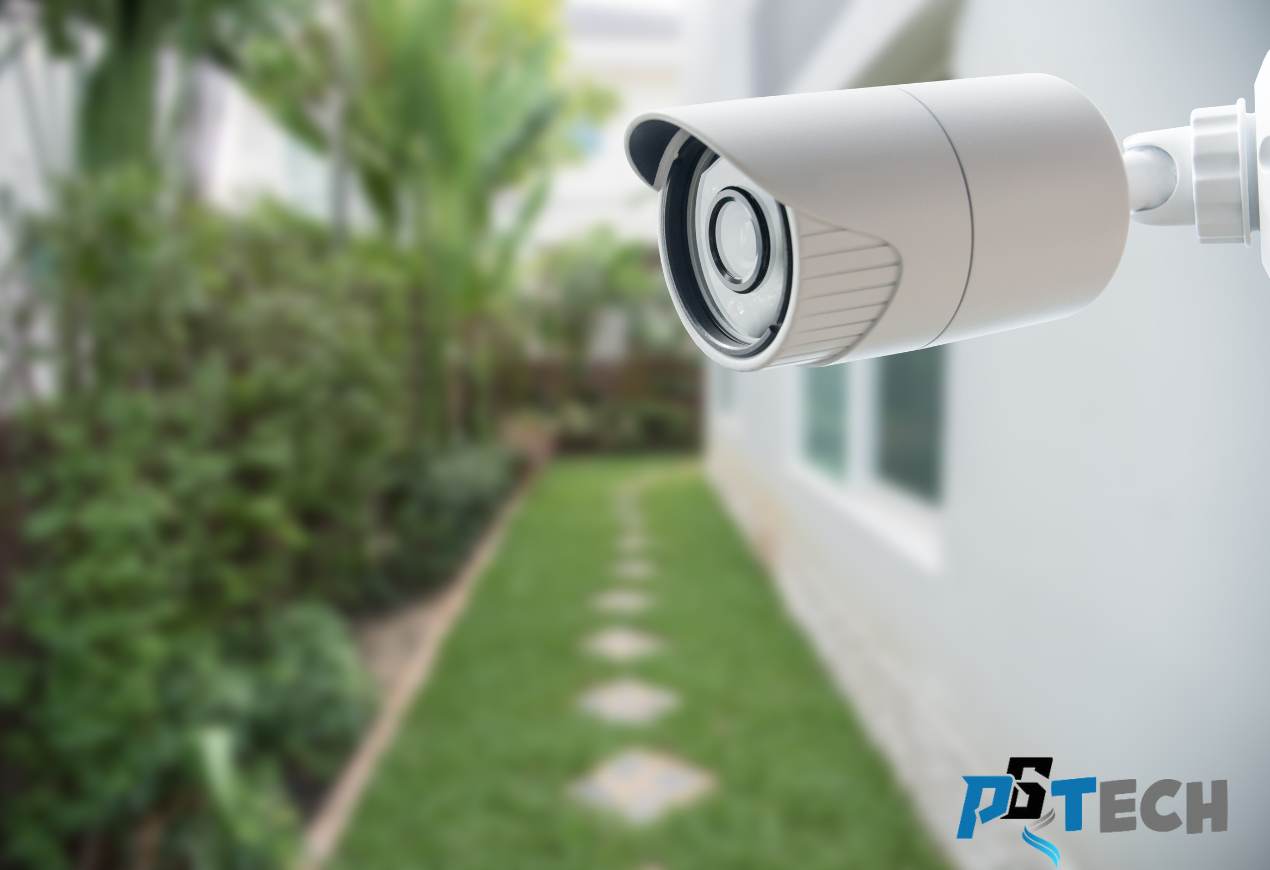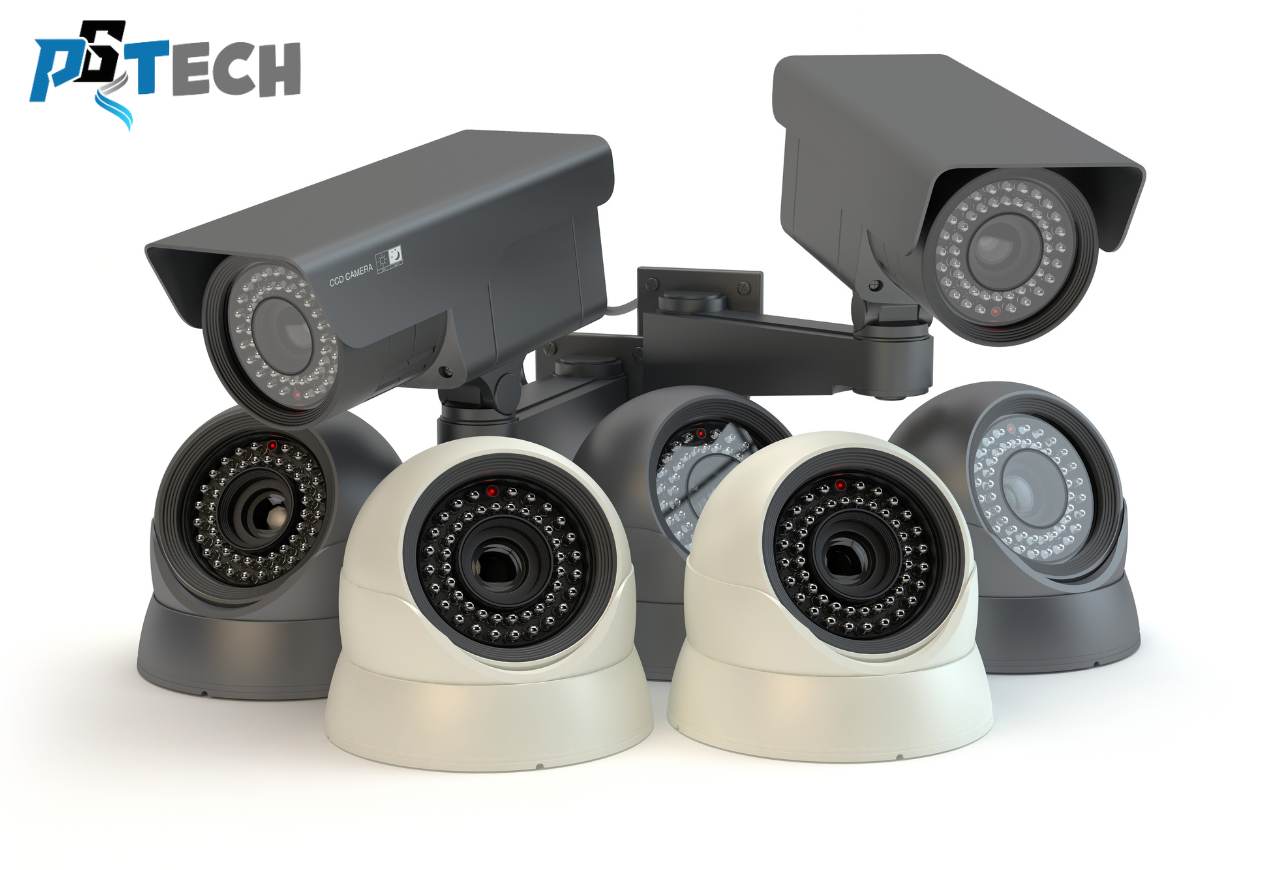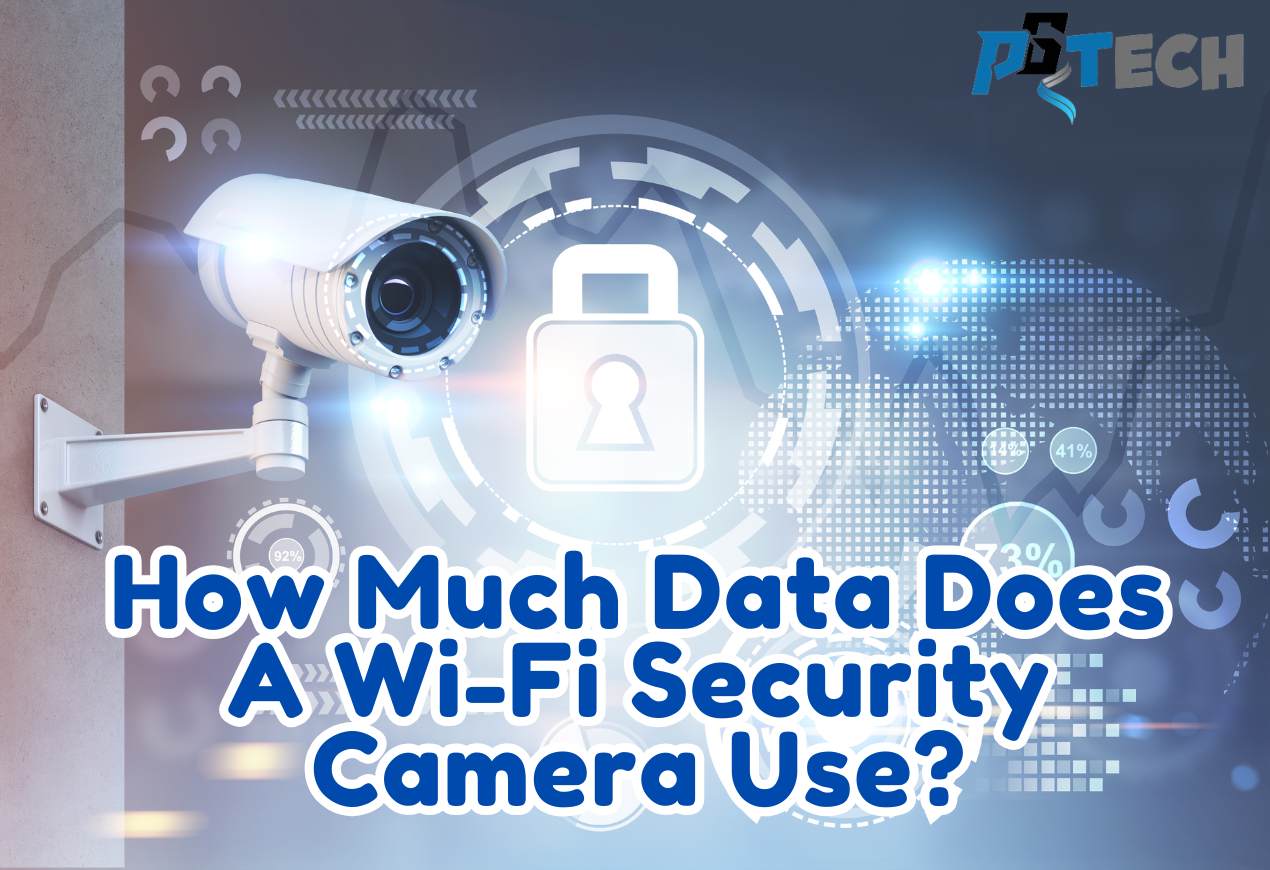How Much Data Does A Wi-Fi Security Camera Use?
Due to their vast range of styles and usefulness, security cameras, also known as CCTV cameras, are utilized in practically every home and business worldwide. Despite the trend, many individuals are still hesitant to use a Wi-Fi security camera because of the amount of bandwidth and data it consumes. So the question is how much data does a Wi-Fi security camera use?
Is there any tool to record it? How do security cameras maintain their storage? This article will guide you on your primary concern because many factors influence the amount of data consumed by home security cameras.
What Are Wi-Fi Security Cameras?
Unlike old-fashioned hardwired security cameras, Wi-Fi-connected security cameras allow you to view everything that happens in your home, or anywhere they get installed. When security cameras are connected directly to the Internet, they can create data streams stored on a cloud-based storage system.
So, even if you’re hundreds of miles away from home. You can keep an eye on your kids or pets, as well as your front door. All of this is possible thanks to Wi-Fi cameras. You do not need to keep your gaze fixed on the screen at all times. Because some Wi-Fi security cameras include sensitive motion sensors, you’ll get a notification on your smartphone if the movement gets detected in your home.

Do All Wi-Fi Security Cameras Use Data?
A high-speed internet connection with sufficient upload and download capacity are required for almost all Wi-Fi security cameras. A Wi-Fi security camera uses data for a variety of purposes:
- Using the cloud to save video footage.
- Up-to-date software
- Streaming in real-time
How Much Data Does A Wi-Fi Security Camera Use?
Camera Resolution
When it comes to spotting criminal activity, camera resolution is crucial. Higher video quality is essential for security cameras in particular. Although better quality is preferable, it comes at the expense of the Wi-Fi security camera’s data usage.
The most excellent security cameras have a 1080p resolution. The distinction between low quality and the high-quality camera resolution is that high cameras’ resolution can capture images in challenging conditions.
Frame Rate Per Seconds (FPS)
The camera gets measured in frames per second. If your security camera records 30 frames per second (FPS), it indicates that it records 30 frames per second of video transmission.
Smoother, sharper video visuals are associated with more frames per second (FPS). The 30fps and 60fps are the most common FPS for cameras. A greater FPS, like a more excellent resolution, has an impact on your Wi-Fi data camera consumption.
Footage Upload Frequency
Do you upload recordings to the cloud all the time or only when motion and sound are detected? Well, it’s the only method to go back in time when some illegal activities get done behind your back.
So that’s why the frequency with which recordings get uploaded to the cloud is generally the primary reason for a Wi-Fi security camera’s high bandwidth and data usage.

Number Of Security Cameras
It’s self-evident that the more cameras you have on your network, the more bandwidth they consume. Your monthly data use will be consumed in a matter of days or weeks if you have a large number of Wi-Fi cameras.
The most significant disadvantage of these cameras is that they cover a large area, obviating the need for additional security cameras. If you wish to bypass data limitations, however, In that case, it’s advisable to restrict the amount of Wi-Fi security cameras you have rather than going overboard.
Scene Activity
A Wi-Fi camera’s data consumption get influenced by the sort of scene it records. As a general rule, filming a 10-second clip of a white wall requires less bandwidth than streaming a clip of a crowded room full of people.
Compression Level
Videos and photos get compressed before being uploaded, which varies by brand and model. While video and picture quality suffers as a result of compression, bandwidth use gets reduced.
Wi-Fi Security Cameras Without Data
Technically, a security camera may get set up in such a way that no data get used. Although these cameras and their footage may not be compatible with a smartphone app, it does not imply they cannot get viewed.
Hardwired cameras can still keep people secure and discourage crime in their homes. In most circumstances, using Wi-Fi makes sense. Still, there may be occasions when choosing something else is a better or more feasible option. But still, some downfalls are attached to it, such as:
- The videos can only get saved locally on an SD card, a PC, or a network video recorder (NVR). You may lose the videotape if something goes wrong or if they get taken.
- It isn’t easy to install security cameras without Wi-Fi
- Using a security camera without Wi-Fi has several drawbacks, one of which is not having immediate access to the live feed.
- If you go for hardwired security cameras, you must be okay with having cables running throughout your house.
Final Thought
While these are some of the most prevalent factors that determine whether or not your Wi-Fi camera will consume your monthly internet data allowance. It also relies on the area where you’re using it, and it’s a truth that more populated places consume more data than less crowded places.
To be more precise, it’s best to figure out how much data it should consume in advance. Most of the time, smart home gadgets are customized to your demands and fit inside your internet budget, but this isn’t always the case.

Robert Will is an expert in wearable technology, with a keen focus on smartwatches and smart rings. Passionate about staying at the cutting edge of tech, Robert regularly acquires the latest wearable devices to thoroughly test and review. His in-depth guides are crafted to help consumers navigate the ever-evolving world of smart wearables, ensuring they make informed decisions. With a background in tech journalism and a genuine enthusiasm for innovation, Robert’s insights are both practical and engaging. Whether you’re a tech novice or a seasoned gadget enthusiast, Robert’s comprehensive articles and reviews offer valuable perspectives to enhance your tech experience.







